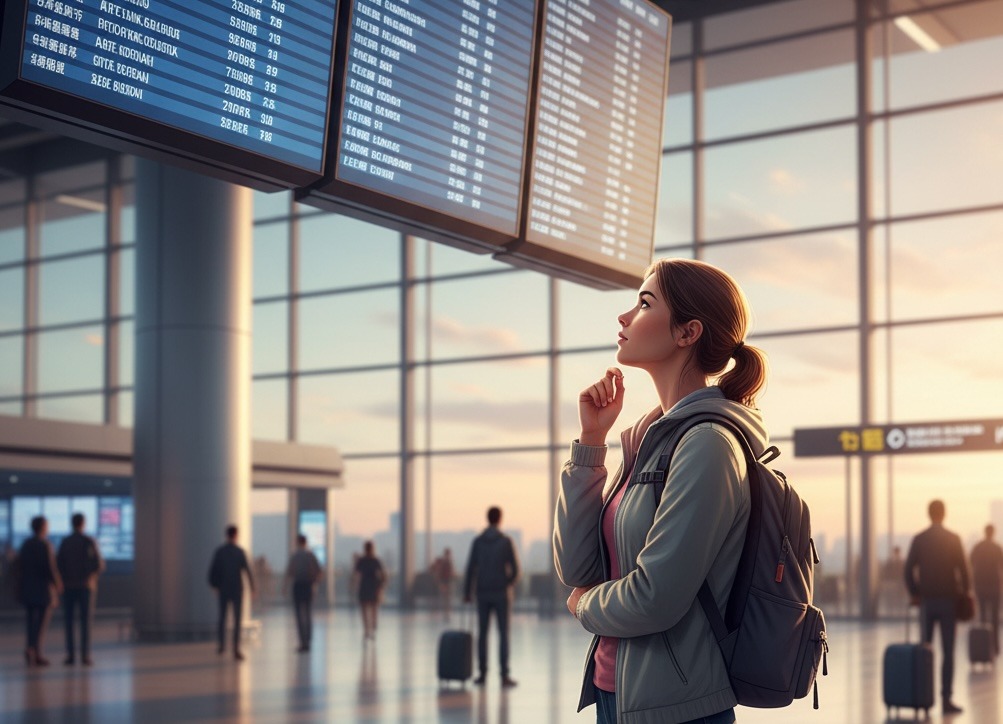Check requirements for Asia's Retirement Visas
What Does the US State Department's China Travel Advisory Really Mean for American Tourists?
Decipher the US State Dept's Level 2 China travel advisory. Learn the real risks (exit bans, legal trouble) vs. the myths (petty crime) and get actionable safety tips for your trip.
CHINA
10/23/20254 min read


Let's be honest: planning a trip to China right now feels complicated. You’ve seen the incredible photos of the Great Wall and the terracotta warriors, but then you check the news and see headlines about political tensions. You do the responsible thing: you check the U.S. State Department’s website. You see a clear, bold warning: Level 2: Exercise Increased Caution. But what does that jargon actually mean for your two-week vacation? Does "increased caution" mean pickpockets in Beijing, or something much more serious?
When I first saw that Level 2, I admit, I got a nervous flutter. I thought, Is this like a high-crime neighborhood advisory? But as I quickly learned, the safety risks in China are unique. The concern isn't the petty crime you might face in many major European cities; it’s about a very specific and less predictable legal landscape.
The question is, should we even be worried if we're just a regular tourist and our main objectives are just some divine Chinese food, exciting scenaries and some history and culture?
Decoding the Level 2 Warning
The U.S. State Department’s travel advisory system has four levels. China currently sits at Level 2 (Exercise Increased Caution), which is the same level often applied to popular tourist destinations like the UK, France, and Spain.
However, the reason for China’s Level 2 is what truly matters, and it’s critical for American travelers to understand this distinction:
The primary risk cited is the "arbitrary enforcement of local laws, including in relation to exit bans."
This is the political and legal risk. The key takeaway is that the biggest threat to an American tourist is not street crime, but getting unintentionally entangled in legal or civil disputes.
The Two Core Safety Risks You Must Understand
While China is widely considered much safer than many U.S. cities when it comes to violent crime, the political/legal environment introduces two unique and serious risks:
1. The Arbitrary Exit Ban
An exit ban is an order that prevents a foreign national from leaving China. You might only discover this is an issue when you attempt to board your flight home at the airport.
Who is at risk? This risk is generally higher for business professionals, those involved in commercial or financial disputes, dual U.S.-Chinese citizens, and those with family ties to ongoing investigations.
The Statistic: While total numbers are fluid and often secret, the Dui Hua Foundation, which tracks detentions, estimated that there are at least 30 U.S. citizens subject to unlawful exit bans in China as of a September 2025 report. That's just 30 or out of the ten if not hundred of thousand of US citizens who live or tour China annually!
2. Digital Surveillance and Censorship
China maintains some of the world’s strictest internet controls, known as the "Great Firewall." As a visitor, you are subject to this surveillance, and your digital footprint can be scrutinized.
Data Point: According to Freedom House's 2024 report on internet freedom, China continues to rank near the bottom globally due to its extensive surveillance and censorship.
Actionable Tip: Be mindful of what is on your electronic devices. Do not discuss sensitive political topics openly, especially near government buildings or on unencrypted communication apps.
Practical Steps to Travel Smart
A Level 2 advisory simply means you should travel with heightened awareness—not fear. Here are simple, practical steps to mitigate the risks and enjoy your trip:
Register Your Trip: Sign up for the State Department’s Smart Traveler Enrollment Program (STEP). This ensures the nearest U.S. Embassy or Consulate can contact you in an emergency.
Know the Law (and Your Visa): Only engage in activities permitted by your visa type. If you are on a tourist visa, do not conduct business or educational teaching. Overstaying your visa can lead to immediate detention and deportation.
Protect Your Devices: Use a reputable, paid VPN (Virtual Private Network) before you arrive. Consider using a “burner phone” or a separate device with no sensitive data for your travel period.
Master the Basics of Petty Crime: While rare, petty theft still occurs in crowded tourist zones. Keep your wallet secure, especially on crowded subways. Tip: The China Highlights 2024 travel guide notes that one of the most common tourist scams is the "teahouse scam," where friendly locals invite you to an establishment and present you with an outrageously inflated bill. Politely decline these spontaneous invitations.
Conclusion
The U.S. State Department’s Level 2 warning for China is a necessary and serious caution about the unique legal and political environment. It is less about your physical safety from street crime and far more about judicial risk.
But these warnings shouldn't really bother a regular tourist who is not on business in China. You are likely to find friendly Chinese people, clean hotel rooms, great food, great transport hubs and beautiful scenery more than anything else.
By understanding the difference, registering your travel, and exercising caution with your digital and legal presence, you can manage the risks very effectively. China is a country of breathtaking beauty and millennia of history—travel smart, and you can still experience the adventure of a lifetime.
Have you traveled to China recently? Share your experiences and best safety tips.
Disclaimer: This article is for informational purposes only and does not constitute professional legal or travel advice. Always consult the official U.S. State Department website for the most current warnings and advisories.

Address
Blk 8 Cantonment Close
SIngapore